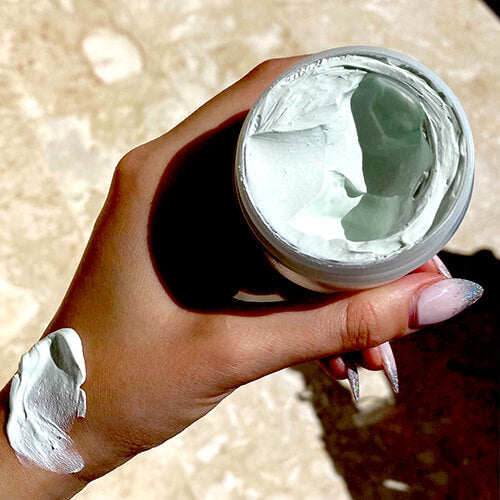
What You Need to Know About Acne Masks
If you’ve got acne — be it clogged pores or a case of inflammatory pimples — chances are, you’ve tried an acne face mask. But with hundreds on the market, how do you know which masks actually *treat* acne? We asked our founder, Sandra Lee, MD (aka Dr. Pimple Popper), what we need to know about acne masks.
Published:
3 minute read
If you’ve got acne — be it clogged pores or a case of inflammatory pimples — chances are, you’ve tried treating it with a face mask. But with hundreds of formulas on the market, how do you know which masks actually treat acne, and which ones are only #oddlysatisfying?
To learn more, we asked our founder, board-certified dermatologist Sandra Lee, MD (aka Dr. Pimple Popper), for her take on what we need to know about acne masks.

3 minute read
Article Quick Links
Know your skin type
Though most people who have acne fall into the oily skin category, it’s certainly possible to have breakout-prone combination or dry skin. And plenty of sensitive skin types get acne.
So why does it matter when choosing a mask? “Considering your skin type when choosing any acne treatment is important,” says Dr. Lee, “since you can make acne worse if you upset your skin’s delicate balance.” Typically, oily skin can tolerate stronger treatments, while dry or sensitive skin needs a gentler approach.
What to look for:
- Oily types: maximum-strength acne-fighting ingredients, oil-controlling formulas
- Dry types: lower concentrations of active ingredients, plus non-comedogenic hydrators/moisturizers
- Sensitive types: similar to dry skin, also avoid synthetic fragrances and anything you’re allergic to
Choose the right ingredients
There’s a wide range of active ingredients in acne treatment masks. It helps to know a little bit about what these ingredients actually do, so you can choose the right combination. The best acne masks contain a mixture of antibacterial, exfoliating, and oil absorbing ingredients.
But beware, warns Dr. Lee: not all products are created equal. “The FDA is very strict about what skincare manufacturers can and cannot say on their labels,” she notes. “I went through the process to make sure my SLMD Clear Out actually treats acne, so we can say that right on the packaging.“
Here’s a roundup of some of the most effective acne treatment mask ingredients:
- Acne-fighting ingredients: salicylic acid, sulfur, benzoyl peroxide
- Exfoliants: glycolic acid, lactic acid, mandelic acid
- Oil absorbers: kaolin clay, bentonite clay, charcoal
- Skin soothers: zinc oxide, glycerin, shea butter, aloe vera
Consider the type of mask
Acne face masks come in a bunch of forms, from sheet masks to clay masks to peel-off masks. Each type has its own benefits and drawbacks, so consider what you're looking for in a mask.
- Clay masks: great for absorbing excess oil to help unclog pores, but can be drying
- Charcoal masks: similar action to clay masks, absorb impurities but may be drying
- Sheet masks: convenient, with easy cleanup, but may not be as effective
- Peel-off masks: exfoliating, satisfying to use, but can be harsh on the skin
- Overnight masks: typically contain chemical exfoliant and/or retinol
When developing her own SLMD Clear Out mask, Dr. Lee wanted to create something that was missing from the market: an acne treatment mask using clinically-proven ingredients that’s recommended for all skin types. It’s formulated with salicylic acid, sulfur, and zinc oxide. “I have a lot of potent acne treatments in my SLMD Skincare line,” she says, “so we made sure that Clear Out treats acne, but isn’t harsh or drying. It has that spa day feel.”
Don't overdo it
While acne face masks can be a great addition to your skincare routine, don't use them too often. Overuse can dry out your skin and make your acne worse. Stick to using a mask between one to three times per week, and always follow the instructions on the packaging.
If you’re dealing with chronic breakouts, an acne treatment mask won’t be your sole solution; try an acne skincare kit first. Using a curated routine (like SLMD Acne System) is the best way to treat and prevent acne at every stage. Then supplement your daily routine with an acne treatment mask.

Dr. Lee's Last Word
I love a good mask — smooth it on and put your feet up for a few minutes. This was the inspiration behind my Clear Out mask: something that’s going to really treat your clogged pores and active acne, but that makes you feel pampered too.



















